When Support Becomes a Strain: Navigating Emotional Labor in Friendships Amidst Identity Revelations
A decade-long friendship between a 32-year-old woman and her best friend, T, a 30-year-old man, has recently faced significant challenges. Their bond, once fortified through shared experiences and mutual support, began to fray after T disclosed his interest in cross-dressing. Initially, the revelation was met with understanding and acceptance. However, over time, T’s need for constant reassurance and validation regarding his identity began to strain the relationship. Despite her continued support, including advocating for him among friends and assisting with his fashion choices, the woman finds herself subjected to unwarranted accusations and emotional outbursts from T, leaving her feeling attacked and misunderstood.
The deterioration of their friendship underscores the complexities that can arise when personal identity struggles intersect with close relationships. The woman’s experience highlights the emotional toll that can result from being a constant source of support without reciprocal understanding or boundaries. As T grapples with his identity amidst a challenging political climate for the LGBTQ+ community, the woman confronts the difficult reality that unconditional support can sometimes lead to personal distress, prompting her to reevaluate the dynamics of their friendship.
A person coming out to another can drastically change their relationship on many levels

A woman’s close friend came out as a cross-dresser to her, explaining he wasn’t gay or trans, just liked dressing femininely
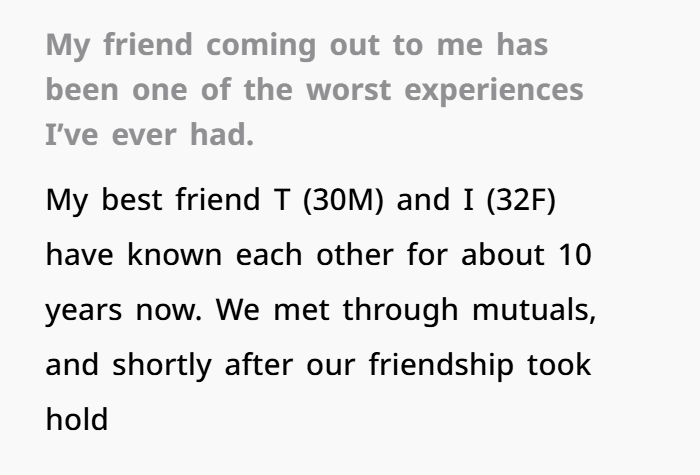

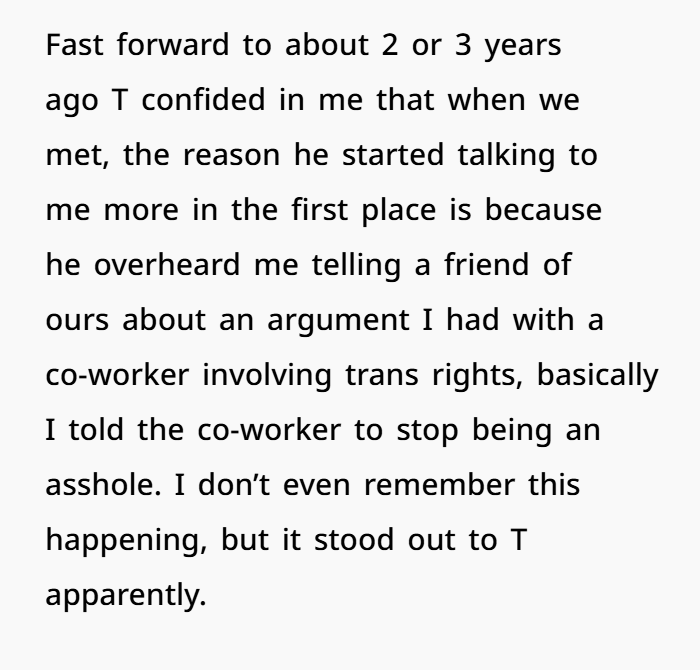
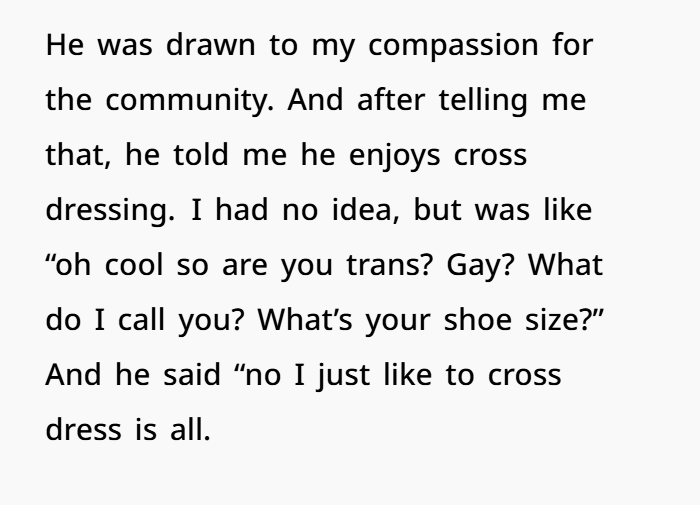

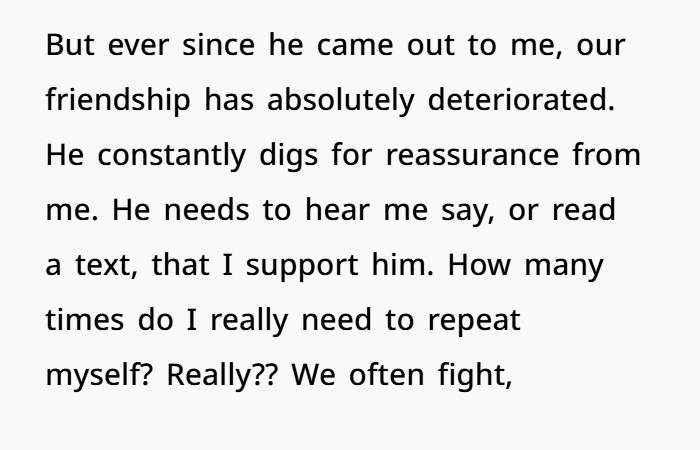
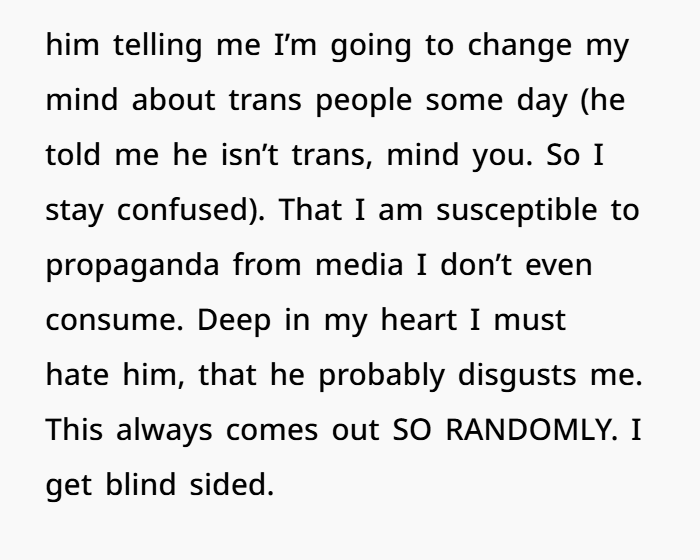
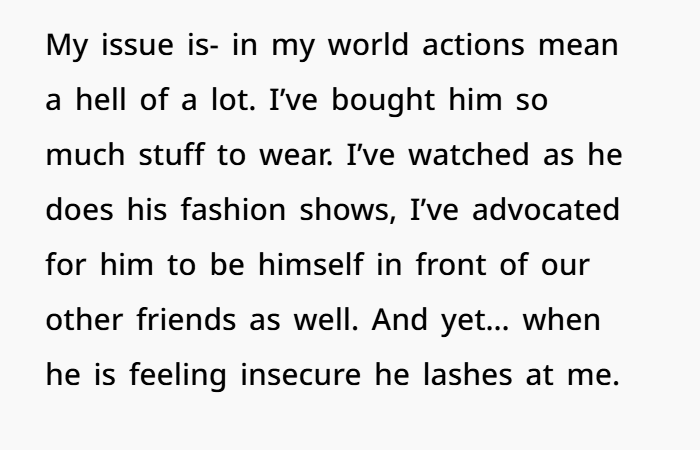
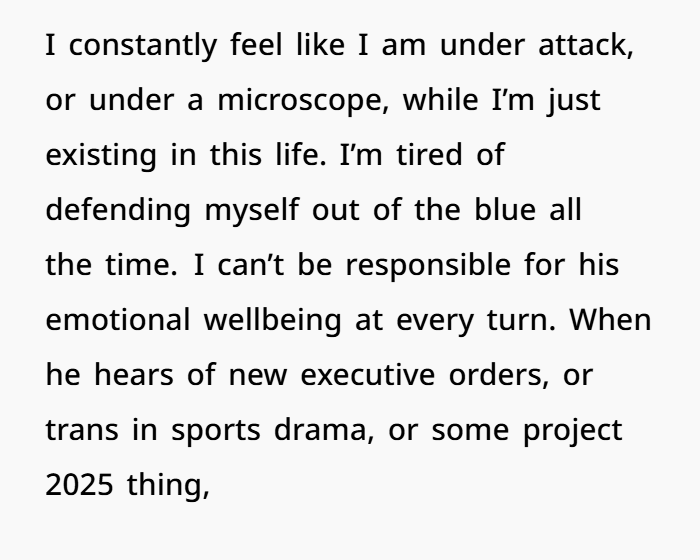
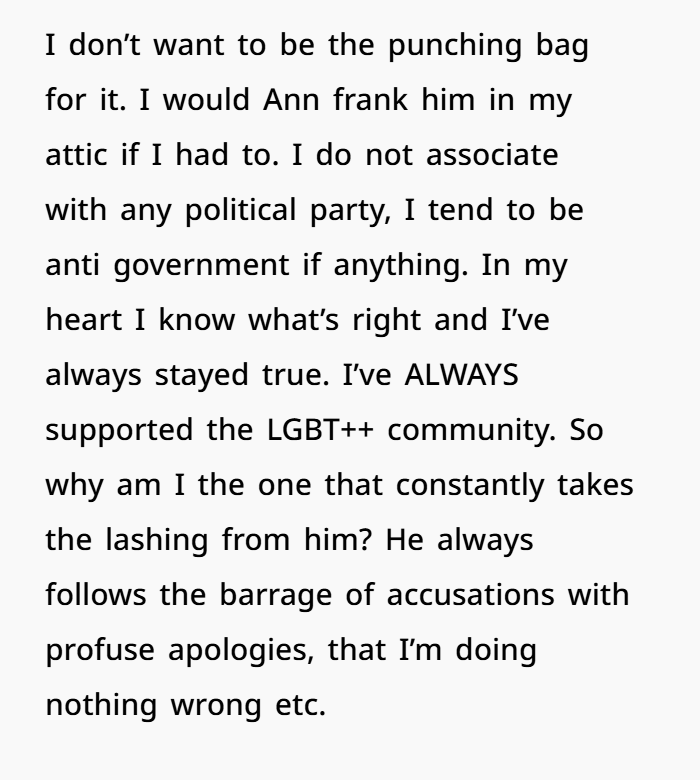
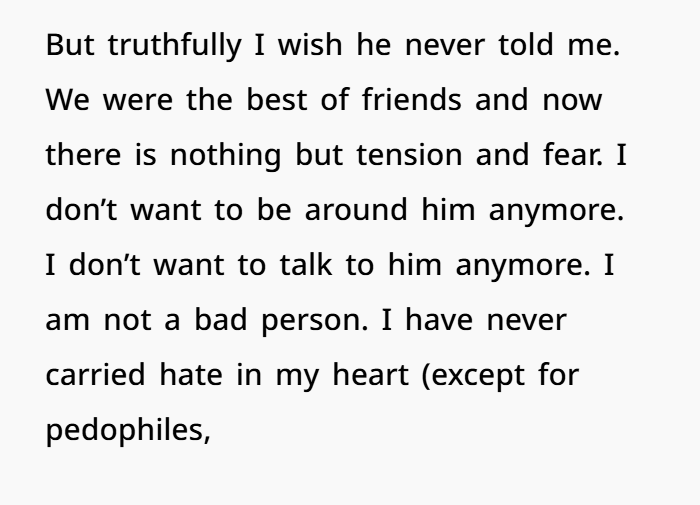
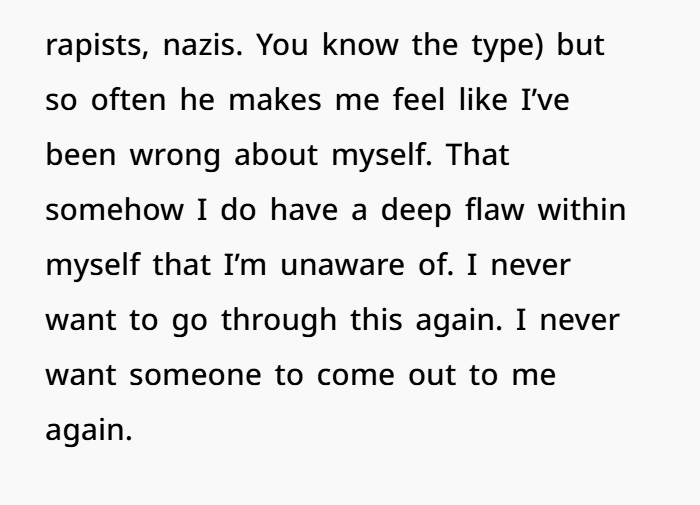
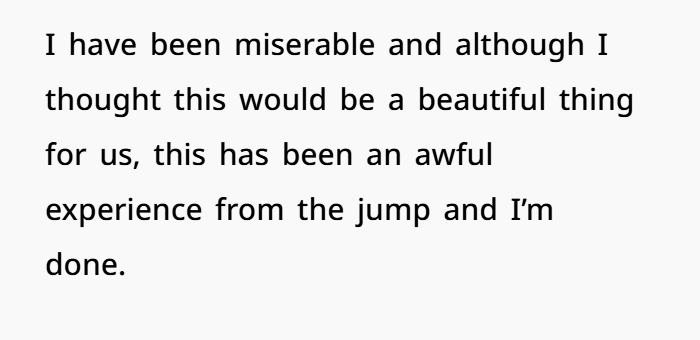
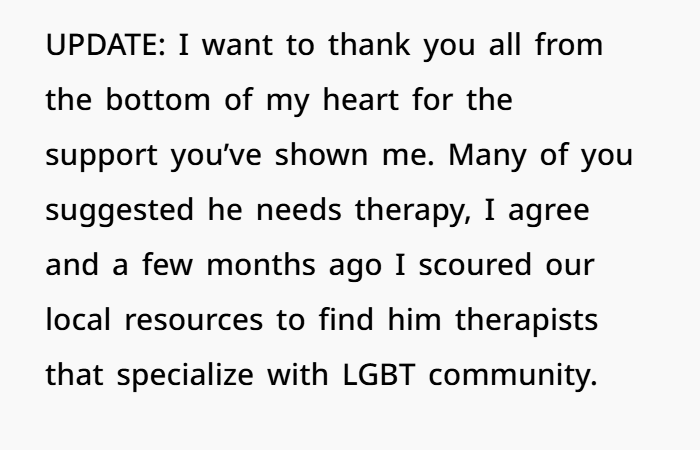

Understanding Emotional Labor in Friendships
Emotional labor, a term originally coined by sociologist Arlie Hochschild, refers to the process of managing feelings and expressions to fulfill the emotional requirements of a role. While often discussed in the context of the workplace, emotional labor extends into personal relationships, where individuals may feel compelled to provide continuous emotional support to friends or loved ones.

In the context of the woman’s friendship with T, emotional labor manifests in her constant efforts to reassure and validate T’s identity. Despite her genuine support, T’s repeated need for affirmation places an ongoing emotional burden on her. This dynamic can lead to burnout, resentment, and a sense of being overwhelmed, particularly when the support is not reciprocated or acknowledged.
The Impact of Identity Struggles on Relationships
T’s journey of self-discovery and expression through cross-dressing is deeply personal and, at times, fraught with internal conflict. The societal stigma surrounding non-conforming gender expressions can lead to feelings of shame, confusion, and a heightened need for validation from close relationships.
However, when one individual’s identity struggles dominate the emotional landscape of a friendship, it can create an imbalance. The friend providing support may feel their own needs and boundaries are being overlooked, leading to a deterioration of the relationship. It’s essential for individuals exploring their identities to seek professional guidance to navigate their feelings without over-relying on friends for emotional stability.
Setting Healthy Boundaries
Establishing and maintaining healthy boundaries is crucial in any relationship, especially when one party is experiencing significant personal challenges. Boundaries help ensure that both individuals’ needs are respected and that the relationship remains balanced and supportive.
In this scenario, the woman attempted to set boundaries by expressing her feelings and suggesting that T seek professional help. Despite these efforts, T’s continued emotional outbursts indicate a disregard for her boundaries, further straining their friendship.
The Role of Therapy and Support Networks
Professional therapy can provide individuals like T with the tools to understand and manage their emotions, develop coping strategies, and build resilience. Therapists specializing in LGBTQ+ issues can offer a safe space for individuals to explore their identities without placing undue emotional demands on friends or family.

Additionally, support groups and online communities can offer a sense of belonging and understanding, reducing the reliance on a single individual for emotional support. Engaging with others who share similar experiences can help individuals feel less isolated and more empowered in their journeys.
Navigating Friendships Amidst Political and Social Challenges
The broader political climate can significantly impact individuals exploring their gender identities. Legislative actions and societal attitudes towards the LGBTQ+ community can exacerbate feelings of vulnerability and fear, leading to increased emotional needs within personal relationships.
Friends supporting individuals in these circumstances may find themselves inadvertently absorbing the stress and anxiety associated with these external pressures. It’s important for both parties to recognize the influence of these factors and to seek external resources and support systems to alleviate the emotional burden on their personal relationships.
When she asked for advice on what to do online, people there strongly suggested that the man should get therapy, as there’s definitely something going on



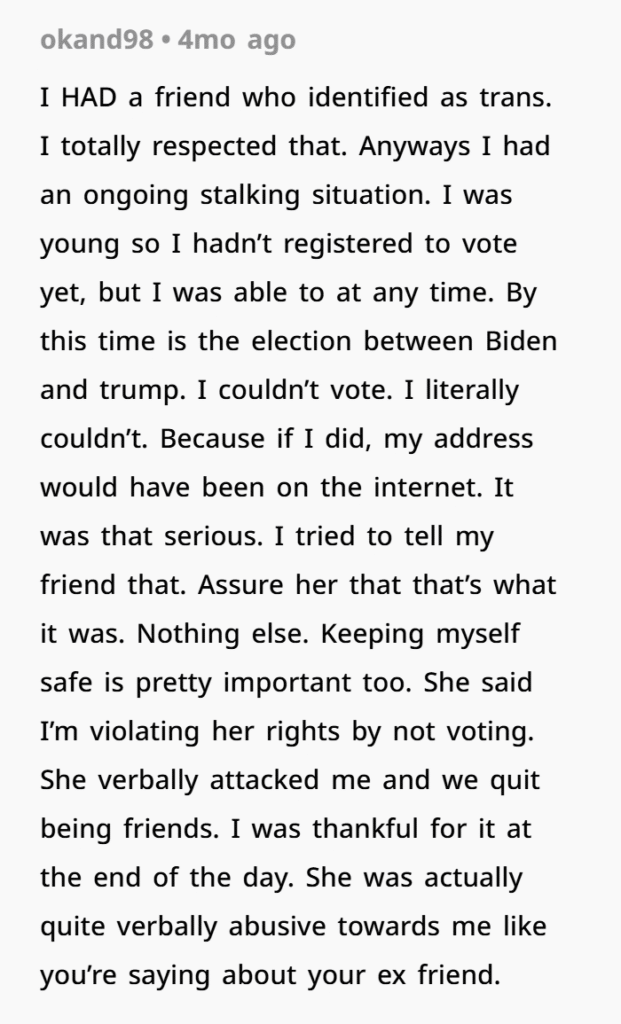
The woman’s experience with her friend T illustrates the complexities of providing support to someone navigating personal identity challenges. While empathy and understanding are essential, it’s equally important to recognize and respect one’s own emotional limits. Establishing boundaries, encouraging professional support, and fostering open communication can help maintain the health and longevity of friendships during times of personal transformation.

